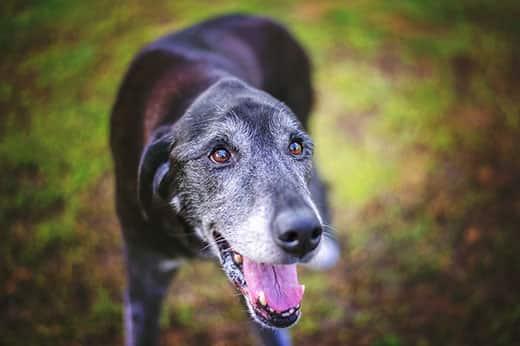
-
Find the right food for your petTake this quiz to see which food may be the best for your furry friend.Find the right food for your petTake this quiz to see which food may be the best for your furry friend.Featured products
 Small & Mini Mature Adult 7+ Dog Food
Small & Mini Mature Adult 7+ Dog FoodHill's Science Plan Small & Mini Breed Mature Adult Dog Food with Chicken is a complete pet food, specially formulated with ActivBiome+ Multi-Benefit Technology.
Tailored nutrition to support graceful ageing in small dogs. Specially made with a synergistic blend of nutrients for energy & vigor.Shop Now Perfect Digestion Small & Mini Adult Dog Food
Perfect Digestion Small & Mini Adult Dog FoodHill's Science Plan Perfect Digestion Small & Mini Breed Adult Dog Food with Chicken & Brown Rice supports ultimate digestive well-being & a healthy microbiome.
Shop Now Perfect Digestion Large Breed Puppy Food
Perfect Digestion Large Breed Puppy FoodPrecisely balanced nutrition with Hill's ActivBiome+ prebiotic blend actively contributes to supporting digestive health and overall well-being to help your pet feel their best
Shop NowFeatured products Hairball & Perfect Coat Adult Cat Food
Hairball & Perfect Coat Adult Cat FoodHill's Science Plan HAIRBALL & PERFECT COAT Adult cat food with Chicken is specially formulated to effectively help avoid hairball formation in adult cats while promoting a beautiful coat. Thanks to its mix of essential Omega-6 fatty acids, this food benefits the cat's skin and fur keeping them healthy and shiny. Our Advanced Fibre Technology helps reduce hairballs by naturally promoting their passage through the gut. This food is formulated with high-quality protein for a perfectly balanced, great-tasting recipe.
Shop Now Hypoallergenic Dry Cat Food
Hypoallergenic Dry Cat FoodHILL'S SCIENCE PLAN Hypoallergenic Adult cat food with egg & insect protein is a complete pet food for adult cat 1–6 years old. It's formulated for cats with delicate skin and stomach, with limited high quality novel protein sources & no grain.
Shop Now Kitten Food
Kitten FoodHill's Science Plan Kitten Wet Cat Food Premium Chunks in Sauce with Chicken is a complete pet food for kittens and for pregnant or nursing cats
Shop Now -
Dog
- Dog Tips & Articles
-
Health Category
- Weight
- Food & Environmental Sensitivities
- Urinary
- Digestive
- Joint
- Kidney
-
Life Stage
- Puppy Nutrition
- Adult Nutrition
- Senior Nutrition
Cat- Cat Tips & Articles
-
Health Category
- Weight
- Skin & Food Sensitivities
- Urinary
- Digestive
- Kidney
-
Life Stage
- Kitten Nutrition
- Adult Nutrition
Featured articles Understanding Your Pet's Microbiome
Understanding Your Pet's MicrobiomeLearn what a pet's microbiome is, how it contributes to your pet's gut & overall health, and why nutrition is important in maintaining healthy microbiomes.
Read More The Right Diet For Your Pet
The Right Diet For Your PetLearn what to look for in healthy pet food & nutrition, including ingredients, quality of the manufacturer, your pet's age, and any special needs they have
Read More Pet Food Storage Tips
Pet Food Storage TipsWhere you store your cat and dog food can make a big difference in the quality and freshness once it is opened. Here are some common questions and recommendations for optimal storage for all of Hill’s dry and canned cat and dog food.
Read More -


Is my dog too skinny? Answering this question can not only help you decide whether you might be over or underfeeding your dog; it can also tell you whether your pet might need to be seen by the veterinarian.
Here's how to tell if a dog is too skinny, what might be causing your dog to lose weight and what being skinny means for your dog's health.
Is My Dog Too Skinny?
Many people have a hard time judging what's a healthy weight for dogs. This is likely due to the prevalence of dog obesity, which has led many dog parents to view overweight dogs as being at a normal weight, explains the Cummings School of Veterinary Medicine at Tufts University. As a result, dog parents might see dogs who are at a healthy weight as too thin, which can lead to overfeeding them.
How to Tell If a Dog Is Too Skinny

Tufts University suggests having either a vet or a certified veterinary nutritionist check your dog's body condition score. This score offers an overall assessment of a dog's body fat, similar to the body mass index for humans.
If they're at a healthy weight, your dog will have a body condition score of 4 or 5 on a scale from 1-9 (or a 3 on a scale from 1-5). Dogs with these scores appear lean, with a clearly visible waistline when viewed from above, and an abdomen that's tucked up and not even with or pooching past the rib cage. You should be able to feel their ribs beneath a thin layer of fat.
If you suspect your dog is too skinny, here are some signs you can look for, according to Rover:
- The ribs are clearly visible or feel like they lie just beneath the skin, with no fat layer in between.
- The hip bones, shoulder bones and spinal cord are easy to feel beneath the skin.
- The bones at the base of the tail are protruding.
- The curve between the ribs and hips looks extreme when viewed from above.
- The spine and ribs are plainly visible when viewed from above.


Tasty Tips
Why Is My Dog So Thin?
If you feel that your dog is too thin, you should consult your vet. They will assess your dog's body condition to either confirm your suspicions or put your mind at ease. And if your dog is underweight, it could be a sign of a larger health problem that needs to be addressed. Apart from starvation and improper care, here are the biggest reasons dogs tend to be underweight.
Poor Nutrition
If your dog is too skinny, one of the first things to check is that you're feeding them properly. Be aware that not all dog foods are created equal in terms of calories and nutritional value. Depending on the manufacturer and brand, one cup of dry dog food can contain anywhere from around 200 to 600 calories, says Tufts University. So while you might think one cup a day is plenty for your pooch, it's possible their food isn't meeting their daily calorie requirement.
Some commercial dog foods also use improperly balanced and/or poor-quality ingredients that don't provide your dog with adequate nutrition. Check with your veterinarian for their recommendation on a high-quality dog food, and be sure to check the number of calories per cup to be sure you're giving your dog the correct amount for their size and activity level. Ask your vet if you're not sure how many calories your dog should be getting each day.
Underlying Health Conditions
Being underweight can also signal an underlying illness, especially if the weight loss is sudden. A number of health issues can cause weight loss in dogs, ranging from tooth pain to gastrointestinal discomfort to more serious conditions such as diabetes, thyroid disease and cancer. Your vet will conduct a thorough exam, along with bloodwork and a urinalysis, in order to discover or rule out what could be responsible for your dog's weight loss.
Age

It's fairly normal for some senior dogs to lose a little weight as they age, due to factors like reduced appetite, loss of muscle mass and digestive problems — all of which are common among aging dogs, says Pet Carrier Verdict. Talk to your vet about possibly switching your dog's food to something more age-appropriate and easier to digest. As common as some weight loss is in senior dogs, rapid or significant weight loss indicate health problems that need to be addressed.
Getting Your Dog to a Healthy Weight
If your dog has an underlying illness, proper treatment may help restore them to a healthy weight. Depending on the condition and your vet's treatment plan, this might include switching your dog's food to a therapeutic formula. Your vet will give you guidance on how much to feed your dog to help them achieve a healthy weight. For very thin dogs, vets might also provide a high-calorie options to help them gain weight more quickly.
If your dog is otherwise healthy, adjusting their daily meal plan to ensure they're getting the proper amount of calories and balanced nutrition should gradually restore them to a healthy weight.
While it might be tempting to supplement your underweight pets food, Tufts University cautions to avoid giving them table scraps, which can cause a nutritional imbalance that can actually cause them to lose weight instead of gaining it.
Being able to notice whether your dog is at an unhealthy weight will prepare you to help prevent a number of connected health problems, and will help you keep your pooch healthy and happy.


Jean Marie Bauhaus is a pet parent, pet blogger, and novelist from Tulsa, Oklahoma, where she usually writes under the supervision of a lapful of fur babies.
Related products

Hill's Science Plan Perfect Digestion Small & Mini Breed Adult Dog Food with Chicken & Brown Rice supports ultimate digestive well-being & a healthy microbiome.

Hill's Science Plan Large Breed Adult Dog Food with Lamb & Rice is a complete pet food, specially formulated with ActivBiome+ Multi-Benefit Technology.
This food is specifically designed to fuel the energy needs of large breed dogs during the prime of their life.

Hill's Science Plan Small & Mini Breed Mature Adult Dog Food with Chicken is a complete pet food, specially formulated with ActivBiome+ Multi-Benefit Technology.
Tailored nutrition to support graceful ageing in small dogs. Specially made with a synergistic blend of nutrients for energy & vigor.

Precisely balanced nutrition with Hill's ActivBiome+ prebiotic blend actively contributes to supporting digestive health and overall well-being to help your pet feel their best
Related articles

Learn about snake bites on dogs, including clinical symptoms to look for, what to do if you think your dog was bitten, and treatment & prevention options.

Discover how the field of dog science is giving us more and more insights into the inner workings of our furry best friends.

Dog obesity is a significant problem - learn more about helping your dog become trimmer and healthier through improved nutrition.

Discover the causes, signs, and treatments of kidney disease in dogs and find methods of supporting your dog's kidney health. Learn more at Hill's Pet South Africa.

Put your dog on a diet without them knowing
Our low calorie formula helps you control your dog's weight. It's packed with high-quality protein for building lean muscles, and made with purposeful ingredients for a flavorful, nutritious meal. Clinically proven antioxidants, Vitamin C+E, help promote a healthy immune system.
Put your dog on a diet without them knowing
Our low calorie formula helps you control your dog's weight. It's packed with high-quality protein for building lean muscles, and made with purposeful ingredients for a flavorful, nutritious meal. Clinically proven antioxidants, Vitamin C+E, help promote a healthy immune system.

